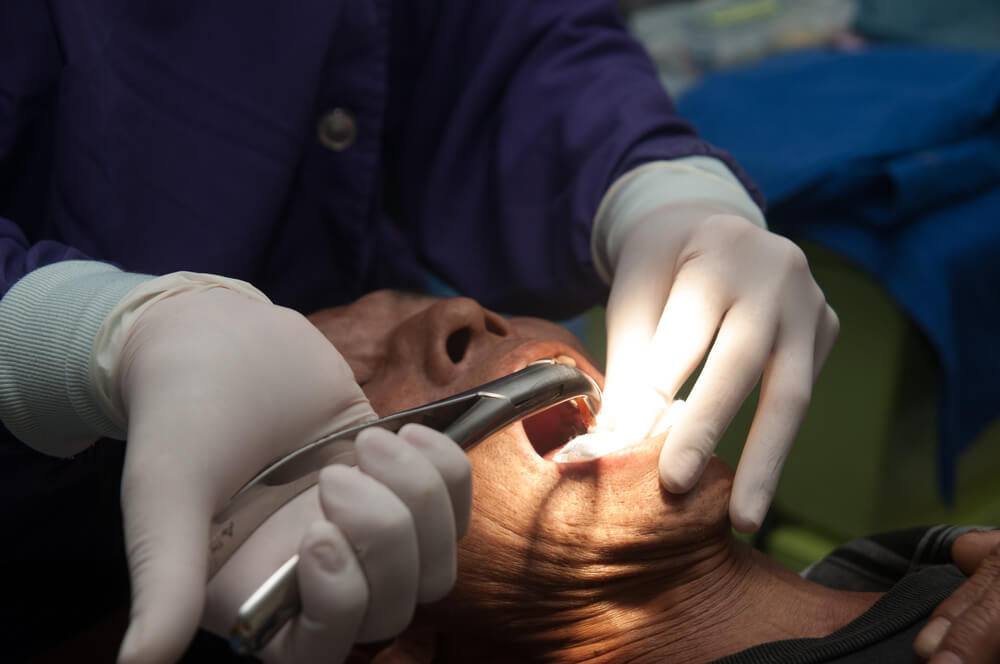
Having your wisdom teeth removed is incredibly common. Indeed, a mere 25% of people manage to avoid this procedure. If you find yourself among the 85% who need to undergo this operation at some stage, try not to stress too much — our expert team is highly experienced in performing dental surgery, and we even offer various sedation methods if you find yourself in a panic.
Wisdom teeth are sometimes referred to as the ‘third molars’, which is exactly what they are. Situated in the posterior quadrants of the top and bottom jaw, wisdom teeth are large, sturdy ‘heavy-duty’ teeth. Wisdom teeth are thought to be vestigial, which denotes that while they formerly had a function, they are no longer technically necessary. It is believed that in the earliest stages of human evolution, our ancestors required these strong molars to properly grind primitive foodstuffs such as hard nuts and tough game. However, as our diets have changed, the need for such teeth has reduced massively. As a result, wisdom teeth no longer serve any real purpose. They can, unfortunately, still cause a whole host of problems, which is why they are so frequently removed.
How Do I Know If I Need My Wisdom Teeth Removed?
The first sign that you may benefit from wisdom tooth extraction is pain and tenderness in the back of your jaw. If you’re feeling some discomfort in that area of your mouth, we recommend taking a good look in the mirror. You might notice some redness and swelling in your gums at the back of your mouth. Occasionally, you may even see the tips of your wisdom teeth starting to erupt. If you spot anything that gives you pause, please call us—minor issues with your wisdom teeth can quickly turn into majorly painful infections if left untreated.
Impacted wisdom teeth are the most frequent issue requiring extraction of the teeth. This happens when your jaw cannot accommodate the teeth’s full eruption. This means that they either grow sideways, pushing against the roots of neighbouring teeth, or they grow downwards, directly into the jawbone itself. Unsurprisingly, both situations can be quite painful and result in infection of the gums and teeth.
What Are My Options For Sedation Dentistry During Extraction?
Wisdom tooth extraction surgery, while common, can be a fairly intense experience due to the size and placement of the teeth. If you find yourself dreading your extraction, please talk to us about your options for sedation during the procedure. While pain relief is a standard part of the surgery, it can be combined with a general anesthetic or IV sedation to help you relax and sleep peacefully through your procedure.
What Can I Expect During Recovery?
If you choose to be put under general anesthetic during your procedure, you will experience less pain in the immediate period following your extraction. This is because the drugs used are longer-lasting than those used for a local anesthetic. Regardless of how you choose to go through your extraction, you should expect to feel pain, swelling, and tenderness for at least three days after your procedure. During this period, we suggest sticking to soft foods like yogurt, soup, and smoothies. Because problems or infections brought on by wisdom tooth removal can cause excruciating pain, you must adhere to our after-care instructions. Be sure not to dislodge the blood clots over the wounds by rinsing too vigorously, as this can cause a condition known as “Dry Socket.” This is intensely painful as it exposes the tooth nerves and jawbone.
How Can We Help?
We advise coming in for a checkup if you’ve felt any pain or tenderness in the back of your jaw or have seen the tips of your wisdom teeth erupting. We’ll carefully examine your jaw to determine whether a wisdom tooth extraction is necessary.
At Extreme Dentistry, we offer a range of different dental procedures, performed at our highly advanced clinic with the latest in dental technology. We provide cutting-edge treatments in restorative and cosmetic dentistry, in addition to treating sleep disorders and temporomandibular joint disorders.
For more information about our services, please have a look here.
To get in touch, please call 08 8948 1225 or drop us a line.